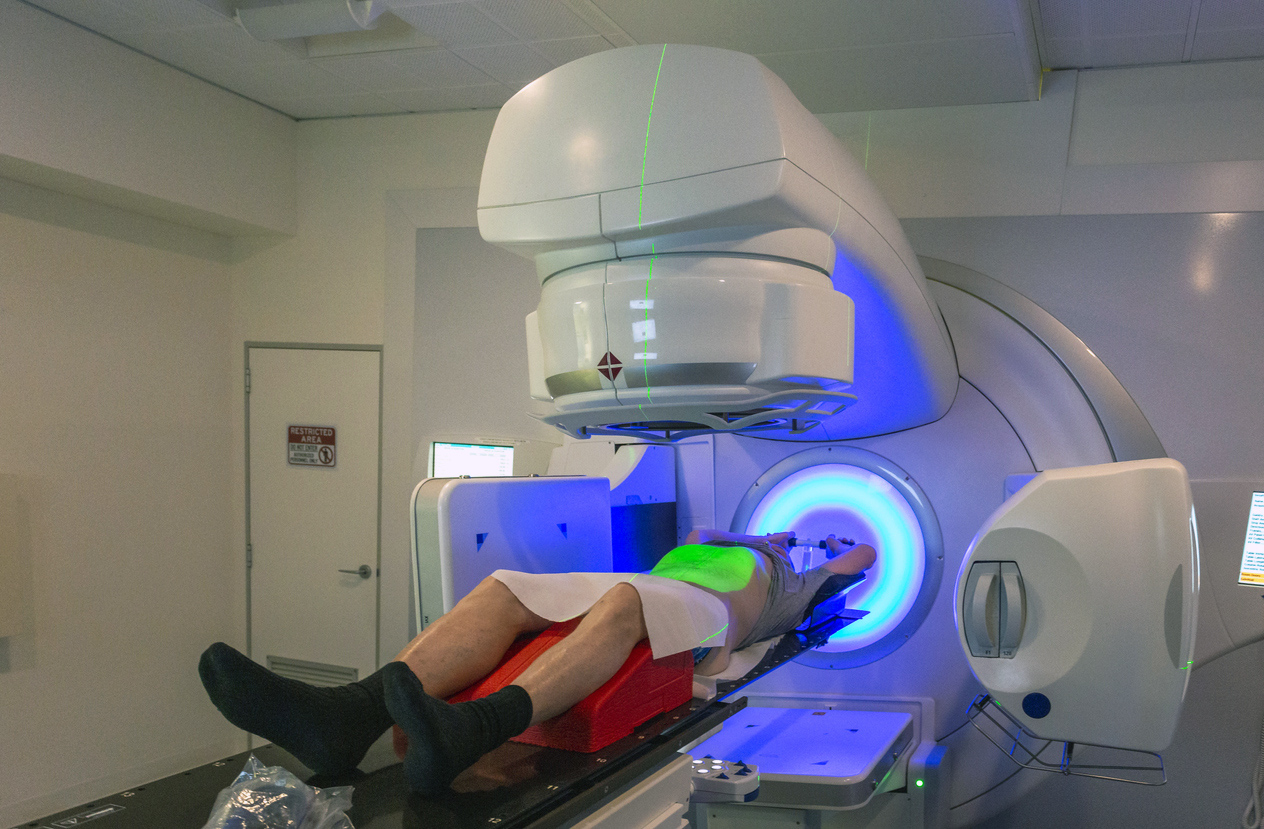A ground-breaking new UK clinical trial could transform the way radiotherapy is used to treat prostate cancer.
The £1.1 million study, by researchers at the University of Leeds, will explore if the treatment – which uses radiation to destroy cancer cells – can be made more effective for men whose cancer has come back after an initial course of treatment to try and cure it.
Although treatment for prostate cancer is usually successful, the cancer can sometimes return in the pelvis.
When this happens, men are normally treated with very precise beams of radiation that directly target the cancer cells. However, even after this follow-up treatment, cancer can develop in other parts of the pelvis and go on to spread throughout the body.
The Leeds team hope to recruit more than 400 men during the three-year trial to see if treating a wider area of the pelvis – not just the tumour sites – can improve outcomes by halting the further spread of the cancer and potentially saving lives.
If it’s successful, it could become a routine practice for men needing radiotherapy to the pelvis to tackle prostate tumours that have spread to the area.
Normally, when a patient needs radiotherapy for recurring cancer, doctors perform a CT scan of the pelvis to pinpoint the exact locations of the tumours. They then zap each one with a focused beam of radiation.
But any cells that may have already migrated to nearby lymph nodes – a network of nodules throughout the body which drain waste and fluid from the bloodstream – will remain hidden.
Lymph nodes are often the first location cancer cells head for when they migrate.

The nodes do not normally show up on a CT scan unless cancer has already infiltrated them and caused them to become enlarged.
The plan is to treat not just the obvious tumour sites but a chain of several lymph nodes too, especially if they appear enlarged, in order to destroy any lingering cancer cells not immediately visible.
Dr Anne Henry, the associate professor in clinical oncology who is leading the trial, says the study will compare cancer recurrence rates in these patients with those receiving targeted radiotherapy.
It will also closely monitor side-effects, as there is a risk of damaging healthy tissue in the process.
She said: ‘The normal course of radiotherapy for cancer that has returned aims to target and kill only the visible cancer cells.
‘Our trial will test whether treating a wider area of the pelvis with radiotherapy works better and can be introduced as a routine option for patients.
‘We will be questioning patients on their side-effects but there has been a lot of improvement in recent years in the way treatment is delivered without causing collateral damage,’ she said.
But it will take up more of patients’ time.
The standard course of radiotherapy is usually given in three to five treatment visits – the extended treatment will require 20 hospital visits.




